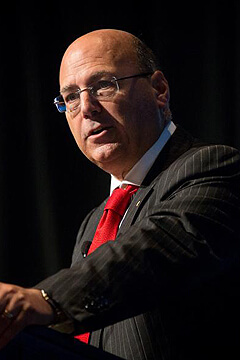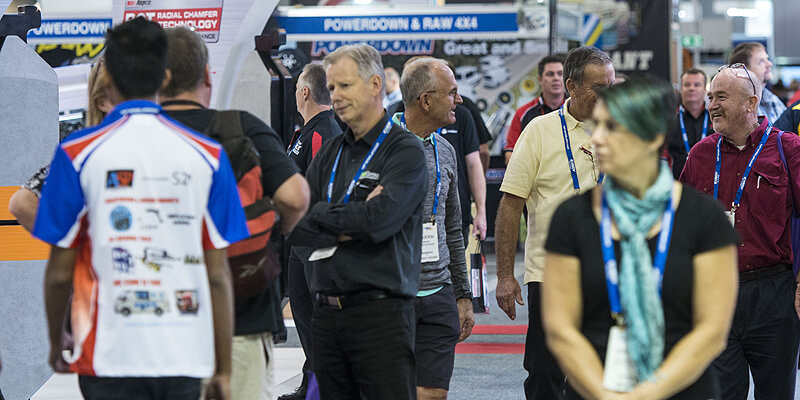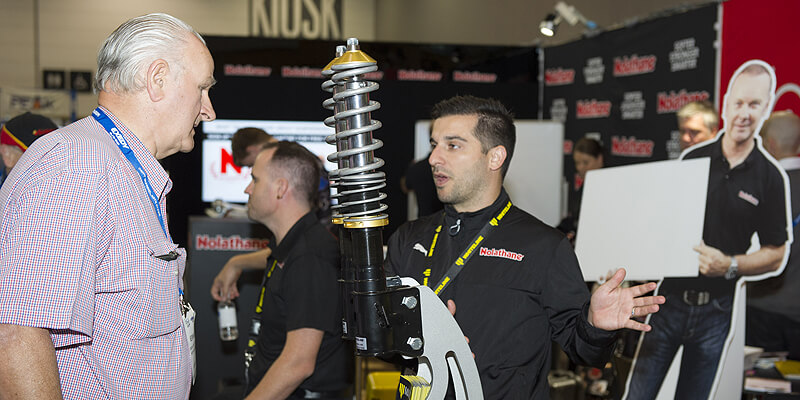
Federal minister for industry, innovation and science Arthur Sinodinos
THE kind of protectionism measures promised by United States president Donald Trump and the successful campaign for Britain to exit the European Union are unlikely to surface in Australia as Holden and Toyota prepare to exit local manufacturing.
In an exclusive interview with GoAuto at the Australian Auto Aftermarket Expo in Melbourne last week, federal minister for industry, innovation and science Arthur Sinodinos said it was “overwhelmingly in our interest to have a more open trading system”.
“Whether you look at agriculture, advanced manufacturing or whatever, we need to have a big world market and can’t just rely on the Australian market,” he said.
Acknowledging the headwinds facing Australian manufacturers, such as the cost of doing business here, Mr Sinodinos highlighted exhibitors at the southern hemisphere’s largest automotive trade fair as examples of “offsetting any potential cost differentials by being more innovative, going up the value chain, adding premium products, creating a market niche”.
“It makes it harder for someone to copy you or to repeat your success, so while the commoditised bit has more competition on cost grounds, what we encourage is more premium and innovative sorts of products,” he said.
Australian Automotive Aftermarket Association (AAAA) executive director, Stuart Charity, whose industry body organises the expo, said he did not believe the Turnbull government has a protectionist agenda but pointed to the its lack of control in the Senate, where One Nation and the Nick Xenophon Team are influential and have stated their “wishes to reorientate industry policy to make sure we still manufacture things”.
On free-trade agreements, Mr Charity described the Thai-Australia FTA as “a disaster for the automotive industry in Australia” but said the AAAA was seeking better government support for exporters rather than increased import tariffs.
“We got absolutely done over by that (Thai-Australia FTA), but the horse has bolted and we can’t bring tariff levels up now. What we would like to see is the government really backing our industry and playing to our strengths,” said Mr Charity.
“There is virtually no trade support from our government for exporters. It is diversifying into new areas, into industrial, rail, heavy vehicles and defence. Companies can’t just flick a switch and come up with hundreds of thousands of dollars to try and back themselves, so the government should be there helping them diversify.”
Mr Charity added that the Thai Board of Investment was at the expo last week promoting incentives for Australian companies to set up shop in Thailand while the Australian government was doing little to help those at home.
“All we get here is, ‘o handouts and if you can’t stand on your own two feet then you shouldn’t be in business.’ But guess what, it’s not a level playing field out there,” he said.

Two way street: Both the Australian Automotive Aftermarket Association (AAAA) and federal government agree that local automotive-related manufacturing requires innovation, diversification and exports to survive.
“I don’t believe in government subsidising unprofitable businesses but I do believe government has a role in supporting and growing and innovating businesses.
“At the moment the policy setting is a disincentive in Australia and I think we’ve got to change that around. You’ve got to have government support for R&D, new plant and equipment and diversification for export.”
Mr Sinodinos told GoAuto the Coalition did have initiatives underway, including the Entrepreneur’s Program and the National Innovation and Science Agenda. He also said the upcoming budget will include a process of making research and development tax incentives “sustainable going forward”.
“Particularly with small and medium-sized enterprises we are giving them greater access to researchers because they might not naturally have that link,” he said.
“Some companies – look at Redarc, they spend 15 per cent on their R&D so for them it’s their lifeblood – but there are some companies that are not doing as much.
“We’ve got programs to encourage them to do that, they think more about innovation – it’s a bit like looking around corners at what’s coming and getting there before the other guy whether domestic or international and we create that platform for doing good things.”
Although Mr Sinodinos made a speech at the official opening of the expo in which he said his role in government “is to make sure we get rid of all the red tape and unnecessary regulation that stands in your way”, he told GoAuto there was still a strong case for “good regulation” that could provide local companies with a competitive advantage on the world stage.
“When (Alibaba founder and executive chairman) Jack Ma was out here in Melbourne to launch the Australia/New Zealand office of Alibaba, he said, ‘I love your environment, you have got a well-regulated environment that is a great selling point for the country’,” Mr Sinodinos said.
“Good regulation is a good selling point for the country overseas when people look at your product, so it is getting the balance right.
“But getting rid of unnecessary red tape, unnecessary outmoded, out-dated regulation and making sure regulation is fit for purpose, so as markets change, they get disrupted, we get the regulation keeping up with that.”
By Haitham Razagui













 Read More: Related articles
Read More: Related articles

